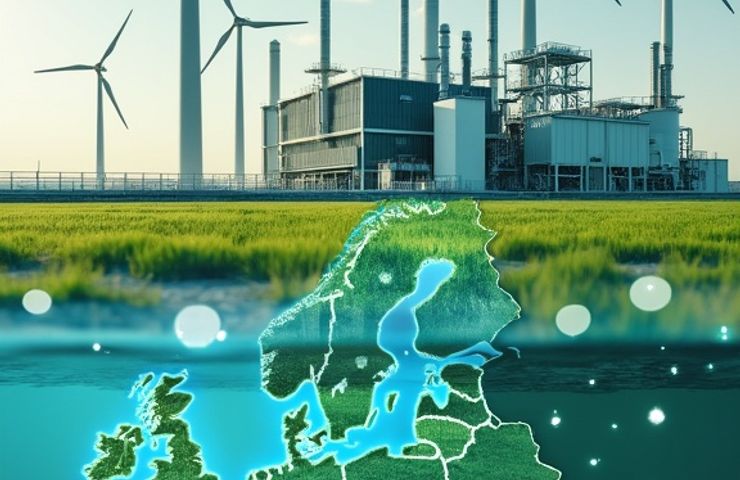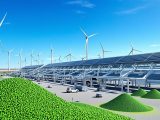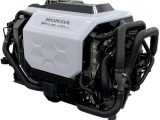
Everfuel Achieves RFNBO Certification, Unlocks EU Incentives
September 4, 2025If you thought green hydrogen was still just a buzzword, think again. On September 3, 2025, Denmark-based Everfuel clinched the Renewable Fuels of Non-Biological Origin (RFNBO) stamp of approval under the EU’s Renewable Energy Directives II and III. That little certificate isn’t just paper—it proves Everfuel’s hydrogen ticks every box on sustainability, traceability and lifecycle greenhouse gas accounting. In the push for climate neutrality by 2050 under the European Green Deal, RFNBO certification is the moment when green hydrogen leaps from niche tech into a bona fide commodity with real regulatory weight and financial upside.
Since the EU unveiled its Hydrogen Strategy back in 2020, Brussels has been dead set on building a homegrown supply chain for low-carbon molecules. The goalposts? 6 GW of electrolyser capacity by 2024 and a whopping 40 GW by 2030. Thanks to its endless wind and friendly policies, Denmark has become ground zero for green hydrogen innovation. Everfuel, born in Herning in 2019, has jumped on that momentum—rolling out pilots and regional hubs that now plug straight into Europe’s growing hydrogen infrastructure.
Policy & Regulatory Context
At the heart of this push is the European Green Deal, which enshrines climate neutrality by 2050 as the ultimate play. RED II (2018/2001) laid down the initial definitions for RFNBO, while RED III now cranks up the pressure on greenhouse gas savings, making sure only the cleanest hydrogen counts toward national targets. Certification schemes—think CertifHy or TÜV Rheinland—aren’t mere red tape. They’re the guardrails that ensure any hydrogen sold as renewable actually lives up to the promise, unlocking subsidies and emission-trading perks.
Strategic Implications for Everfuel
Landing RFNBO certification opens multiple doors for Everfuel:
- Access to feed-in premiums, grants and low-interest loans under RED II/III incentive schemes.
- The ability to issue guarantees of origin (GOs) that prove hydrogen’s renewable pedigree to customers.
- Priority status in EU-backed tenders for public refuelling stations and industrial decarbonization projects.
By checking off the EU’s toughest sustainability requirements, Everfuel cements its spot as a go-to supplier of certified green hydrogen for mobility operators, steelmaking giants and chemical producers across Europe. Its flagship electrolyser in Herning runs off surplus wind power, and every kilo piped to Germany and the Netherlands carries an ironclad renewable badge.
Economic Impact
Analysts reckon Europe’s green hydrogen sector could be worth up to €300 billion a year by 2050, with RFNBO-certified volumes driving the lion’s share of demand. Early movers like Everfuel can nail down offtake deals at premium rates—Guarantees of Origin for RFNBO hydrogen are fetching €2–5 per MWh—and lock in favourable power purchase agreements that keep their electrolysers humming at top load.
How RFNBO Certification Works
To bag RFNBO approval, hydrogen must be made via electrolysis powered solely by renewables—wind, solar or hydropower. The checklist includes:
- Proving electricity origin with guarantees of origin (GOs) or equivalent docs.
- Meeting a life-cycle greenhouse gas target of at least 70% savings versus grey hydrogen.
- Full supply-chain traceability, from water sourcing all the way to the point of use.
Certification bodies run desk audits and on-site inspections before handing over RFNBO certificates. National regulators then treat those certificates as the ticket to EU incentives, national renewable quotas and emissions trading schemes. And looking ahead, RFNBO rules will stretch to power-to-liquid fuels like e-ammonia and e-methanol—Everfuel’s R&D roadmap is already adapting to those next-gen molecules.
Near-Term Market Outlook
The EU’s Hydrogen Strategy aims for 10 million tonnes of renewable hydrogen by 2030, which translates to roughly 40 GW of electrolyser muscle. Everfuel’s RFNBO status turbocharges progress in key areas:
- Industrial decarbonization in steelmaking, refining and chemicals.
- Zero-emission transport, from fuel cell buses and trucks to marine bunkering.
- Major investments in hydrogen storage, pipelines and digital tracking systems.
In the coming months, Everfuel will start supplying certified hydrogen to its fuel cell bus pilot in Austria and a decarbonization trial at a Swedish steel plant—both hinges on RFNBO compliance to snag national subsidies.
Parallel Developments
The RFNBO rush isn’t limited to Denmark. Spain’s Iberdrola and Germany’s Uniper aim to certify electrolyser output by 2026. France is drafting RFNBO guidelines for power-to-gas projects, while the UK’s Low Carbon Hydrogen Standards are being updated post-Brexit. Meanwhile, the Clean Hydrogen Alliance is marshaling €820 billion of public-private capital to hit the EU’s 2030 investment targets.
Industry-Wide Impact
Everfuel’s certification is a bellwether for a maturing market in truly reliable sustainable energy carriers:
- Unified EU rules smooth out cross-border hydrogen trade.
- Investor confidence surges, unlocking financing for electrolyser builds and grid upgrades.
- Ancillary sectors—civil engineering, software for digital tracking, certification services—are booming.
Clusters around Aarhus and the Jutland peninsula are already reporting hundreds of new jobs in construction, IT and compliance—proof that green hydrogen initiatives can drive regional growth.
Future Outlook
Everfuel plans to ramp electrolysis capacity from today’s projects to over 100 MW by 2028, complete with new storage caverns and refuelling stations. On the policy side, the European Commission is piloting a digital RFNBO ledger, and Everfuel’s taking part in blockchain trials to make certificate transfers smoother than ever.
Key Takeaways
- RFNBO certification is the key that unlocks incentives and market entry under the EU’s toughest rules.
- Certified green hydrogen now qualifies for EU emission trading schemes and national renewable quotas.
- Denmark’s wind-powered grid and robust electrolysis ecosystem position it as Europe’s export hub.
- By 2030, green hydrogen could meet over 10% of the EU’s final energy demand, led by RFNBO volumes.
- Challenges remain—renewable electricity availability, grid capacity and evolving certification standards.
About Everfuel
Founded in 2019 and listed on Nasdaq Copenhagen, Everfuel specializes in producing, distributing and selling renewable hydrogen to mobility and industrial clients across Europe. Headquartered in Herning, the company partners with leading energy firms to build refuelling stations, pipeline networks and electrolyser plants.
With clear rules in place and trusted certification in hand, green hydrogen has finally graduated from promise to product—ready to power Europe’s shift to a carbon-neutral future.



 With over 15 years of reporting hydrogen news, we are your premier source for the latest updates and insights in hydrogen and renewable energy.
With over 15 years of reporting hydrogen news, we are your premier source for the latest updates and insights in hydrogen and renewable energy.